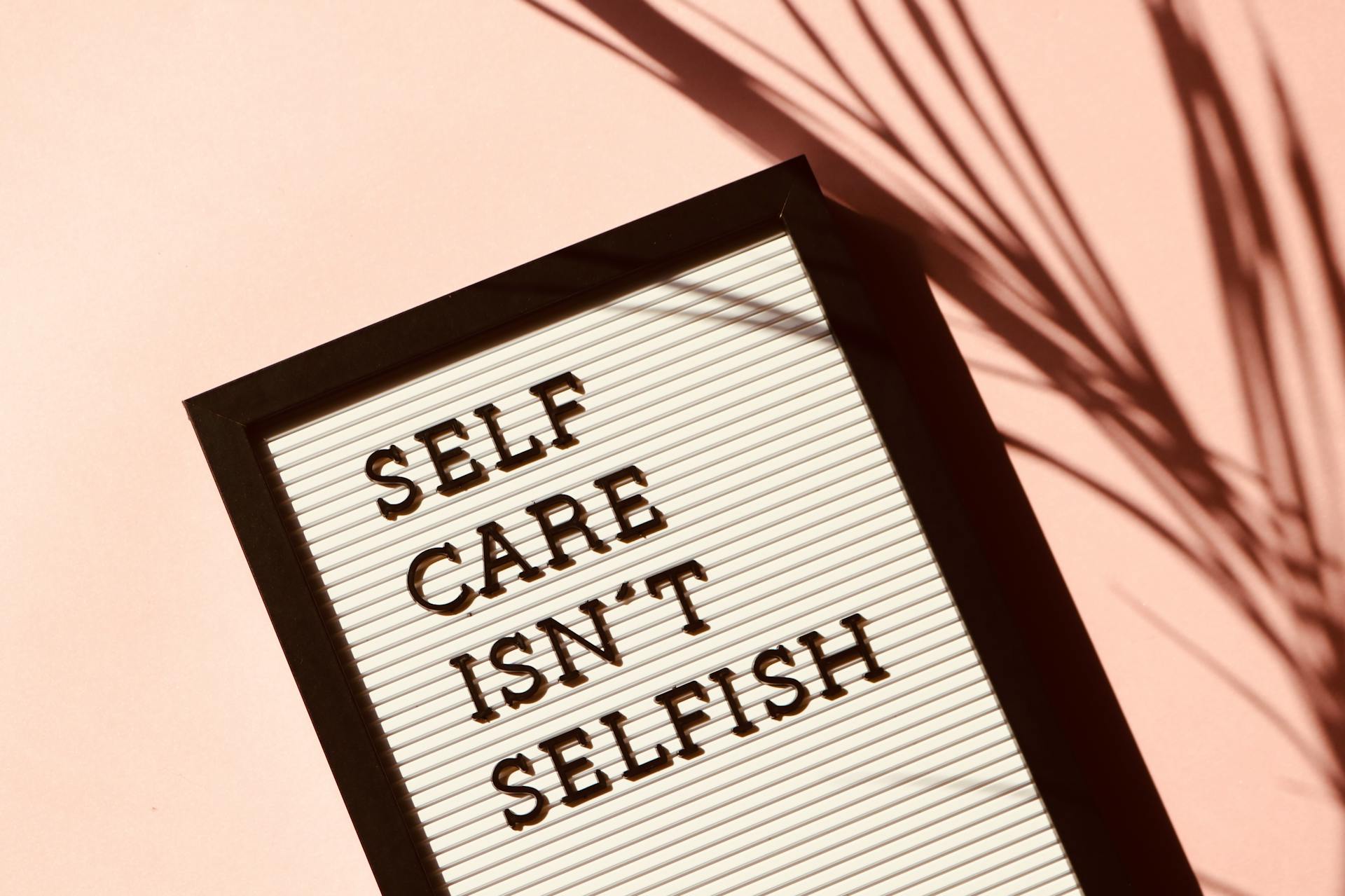
Managing your mental health is one of the most important aspects of maintaining a healthy and balanced life. It can be difficult to know where to start, but taking small steps towards prioritizing your mental wellbeing can make a big difference. From practicing self-care to seeking professional help, there are many ways that you can manage your mental health and improve your overall quality of life.
In today's fast-paced world, it's easy to feel overwhelmed and stressed out. However, neglecting your mental health can have serious consequences on your physical health as well as your relationships and daily functioning. By making conscious efforts to care for yourself both mentally and physically, you can better cope with stressors and challenges in life. In this article, we will explore some practical tips for managing your mental health so that you can live a happier, healthier life.
The Fundamentals of Mental Health You Should Know

Mental health is an integral part of our everyday lives, influencing how we make decisions and interact with others. Basically defined, mental health refers to our psychological and emotional well-being. The vast majority of people in modern medical history, however, weren't sick enough to be considered mentally unhealthy. Contrary to what some may believe, being mentally healthy doesn't simply mean not being a crazy loon; it encompasses a much wider range of factors.
With the advance of psychology and medical science, mental health included not only the absence of mental illness but also social factors that impact interpersonally, community involvement, family and romantic relationships, professional fulfillment, and more. Mental health affects every aspect of our lives. Therefore, it's essential to step back and look at mental health in holistic terms.
While we don't necessarily have control over certain mental disorders like schizophrenia or bipolar disorder, we do have control over managing our daily stressors and ensuring that we take care of ourselves physically and emotionally. So it's important to understand the fundamentals of mental health so that you can work towards maintaining healthy mental health.
1. 96 people had breakthroughs last week. This week, will one of them be you?
Will you be the one to have a breakthrough this week? 96 people did last week, and it could be your turn now. Join millions of others who are taking charge of their mental health by signing up for the breakthrough newsletter. Enter your email and receive unexpected emails that offer tips, resources, and support for managing your mental health.
It's easy to feel overwhelmed and alone when dealing with mental health challenges, but it doesn't have to be that way. By subscribing to the breakthrough newsletter, you'll be part of a community that understands what you're going through and can offer encouragement and guidance. Don't miss out on the opportunity to take control of your mental health - sign up today!
2. Life Experiences and Trauma
Traumatic experiences can have a severe effect on your mental health. Research suggests that people who experience trauma, especially early in life, have a bigger chance of causing problems for their mental health later on. This could be anything from health scares to psychological abuse or shocker intense negative experiences.
However, it's important to remember that nice things can also impact your mental health. If you manage to keep your health intact, you're more likely to have good mental health overall. Unfortunately, many people don't realize the thing trauma does to them until it's too late. Terrible doesn't even begin to describe the effects of severe cases physical or psychological abuse can have on someone's well-being. But if you become aware of how trauma affects you and take steps to address it, you can prevent long-lasting damage and live a happier, healthier life.
Exploring the Concept of Good Mental Health

Mental health influences every aspect of our daily life, including how we feel, think and behave. Having strong mental health enables us to overcome challenges, build relationships and handle life's setbacks with ease. However, having good mental health isn't just about avoiding mental health problems like depression, anxiety or other psychological issues. It also refers to being emotionally healthy and possessing positive characteristics that allow us to bounce back from difficult situations.
To be mentally healthy, it is important to play and rest in equal measure. Regular physical activity can help reduce stress levels and improve overall wellbeing. Taking time for oneself also helps maintain fulfilling relationships which are essential for good mental health. High self-esteem is another key factor in maintaining good mental health.
If you're facing a specific mental health problem, it's important to seek professional help as soon as possible. Mental illness can affect anyone regardless of age or background. Remember that there is no shame in seeking help; it is a sign of strength rather than weakness. By taking steps towards managing your mental health, you'll be better equipped to lead a happier and more fulfilling life.
Boosting Your Brain and Body: The Benefits of Staying Active
Physical and mental health are intrinsically linked, and regular exercise is a powerful way to maintain both. When you engage in physical activity, your body automatically experiences greater mental and emotional well-being. Exercise releases endorphins, powerful chemicals that naturally boost mood and reduce feelings of stress or anxiety. Moreover, staying active can provide added energy for daily life while also having a major impact on emotional health problems like depression or memory issues. So if you're looking to relieve stress, improve memory, or just feel better overall, regular exercise is one of the most effective tools at your disposal.
1. But what if I hate to exercise?
H3: What if I hate to exercise?
If you're not a fitness fanatic, pounding weights or running on a treadmill may not be your idea of a great time. But that doesn't mean you can't benefit from physical activity! Instead of hitting the gym, try taking park walk laps or strolling through an air-conditioned mall. Window shopping throw in some dog dance moves, or put on your favorite music and play activity-based video games with friends. Even small amounts of movement can make a big difference in managing your mental health.
If you have kids, get them involved too! Take them for bike rides, play tag outside, or go for family walks after dinner. And don't worry about muscle aches - start with modest amounts of physical activity and work your way up. Remember, the goal is to feel better mentally and physically, so find activities that are enjoyable to you and make them part of your daily routine.
2. Tips for starting an exercise routine
One of the most effective ways to manage your mental health is by starting an exercise routine. To make an effective start, here are a few tips that you can consider. First, start small and work your way up to longer sessions. Taking 10-minute sessions throughout the day is better than doing nothing at all. Secondly, choose a rhythmic exercise that you enjoy like walking, running, swimming, weight training or martial arts. This not only gets your body moving but also has a mindfulness element as it allows your thoughts to focus on how your body feels when your feet hit the ground while exercising. Lastly, put on your favorite song and use it as motivation to keep going!
Starting an exercise routine may seem daunting at first but taking small steps like these can help you make a significant impact on your mental health in the long run. As always, consult with your healthcare provider before starting any new exercise program.
Eat a brain-healthy diet to support strong mental health

Eating a brain-healthy diet is crucial to supporting strong mental health. An unhealthy diet can impact your mood, disrupt your sleep, and sap your energy. On the other hand, a wholesome diet low in bad fats and high in good fats can improve your energy levels and support brain-health.
It's important to note that people respond slightly differently to different foods depending on their health factors. However, incorporating healthy fats such as omega-3 fatty acids found in fish, nuts, and seeds into your diet can support brain function. Conversely, switching out bad fats found in processed foods for healthy fats can have a positive impact on your immune system. So make sure you're making conscious choices when it comes to what you eat for optimal mental health.
1. Foods that adversely affect mood
Foods have a significant impact on our mood and mental health. Some foods can affect our emotions and cause negative feelings, such as anxiety or depression. Foods that are high in trans fats and partially hydrogenated oil can adversely affect our mood. These types of fats interfere with the production of neurotransmitters, which regulate mood and behavior.
Additionally, foods that contain high levels of chemical preservatives, sugary snacks, refined carbs (such as white rice and white flour), and fried food can also negatively impact our mental health. These types of foods cause blood sugar spikes and crashes, leading to mood swings and irritability. By avoiding these types of foods and incorporating more whole foods into your diet, you can help manage your mental health and improve your overall well-being.
2. Foods that boost mood
The food we eat has a significant impact on our mental health. Eating healthy and nutrient-rich foods can help us feel better, both physically and mentally. Fatty fish rich in omega-3 fatty acids such as salmon, herring, mackerel, anchovies, sardines, and tuna are excellent for boosting mood. These fish contain high levels of EPA and DHA that play an essential role in brain function and help reduce inflammation.
Not only fish but nuts like walnuts, almonds, cashews, and peanuts are also great for enhancing your mood. They contain tryptophan that helps to produce serotonin – the hormone associated with happiness. Leafy greens like spinach, kale, collards are also packed with vitamins and minerals that help fight stress and anxiety. Fresh fruits have antioxidant properties that protect the body against oxidative stress caused by free radicals. All these foods can go a long way in managing your mental health.
Improving Your State of Mind: Tips for Better Mental Health

Good news! It is possible to ensure strong mental health simply by following a few tips. While some people may be diagnosed with diagnosable mental disorders, many common mental health problems can be improved over time. The first step towards better emotional well-being involves becoming aware of your emotional messages and understanding how they impact your life.
Although alcohol and drugs may provide temporary relief from feeling bad, they will eventually worsen your mental health. Instead, try to engage in self-destructive behaviors less frequently and work on developing healthier coping mechanisms. This requires effort, but the good news is that it is possible to enjoy life while maintaining physical and mental health.
It's important to remember that taking care of your mental health takes work. Life takes a toll on our emotional well-being, so we must work harder to maintain it. By practicing self-care techniques such as exercise, meditation, and therapy, we can improve our mental state over time. So take the time to invest in yourself and prioritize your emotional well-being – you deserve it!
Frequently Asked Questions
How can I improve my mental health on my own?
Improving your mental health on your own can be achieved through simple steps such as regular exercise, eating a healthy diet, getting enough sleep, practicing mindfulness and relaxation techniques, and seeking social support from friends and family.
How do you take care of your mental health?
Taking care of your mental health involves practicing self-care, seeking support from loved ones or professionals, engaging in activities that bring joy and relaxation, and being mindful of negative thought patterns.
How does being mindful help your mental health?
Being mindful helps your mental health by increasing self-awareness, reducing stress and anxiety, improving focus and concentration, and promoting positive emotions.
How to overcome bad mental health?
To overcome bad mental health, it is important to seek professional help, practice self-care, and surround yourself with a supportive community. Therapy, mindfulness exercises, regular exercise and healthy eating habits can also aid in improving mental health.
Featured Images: pexels.com